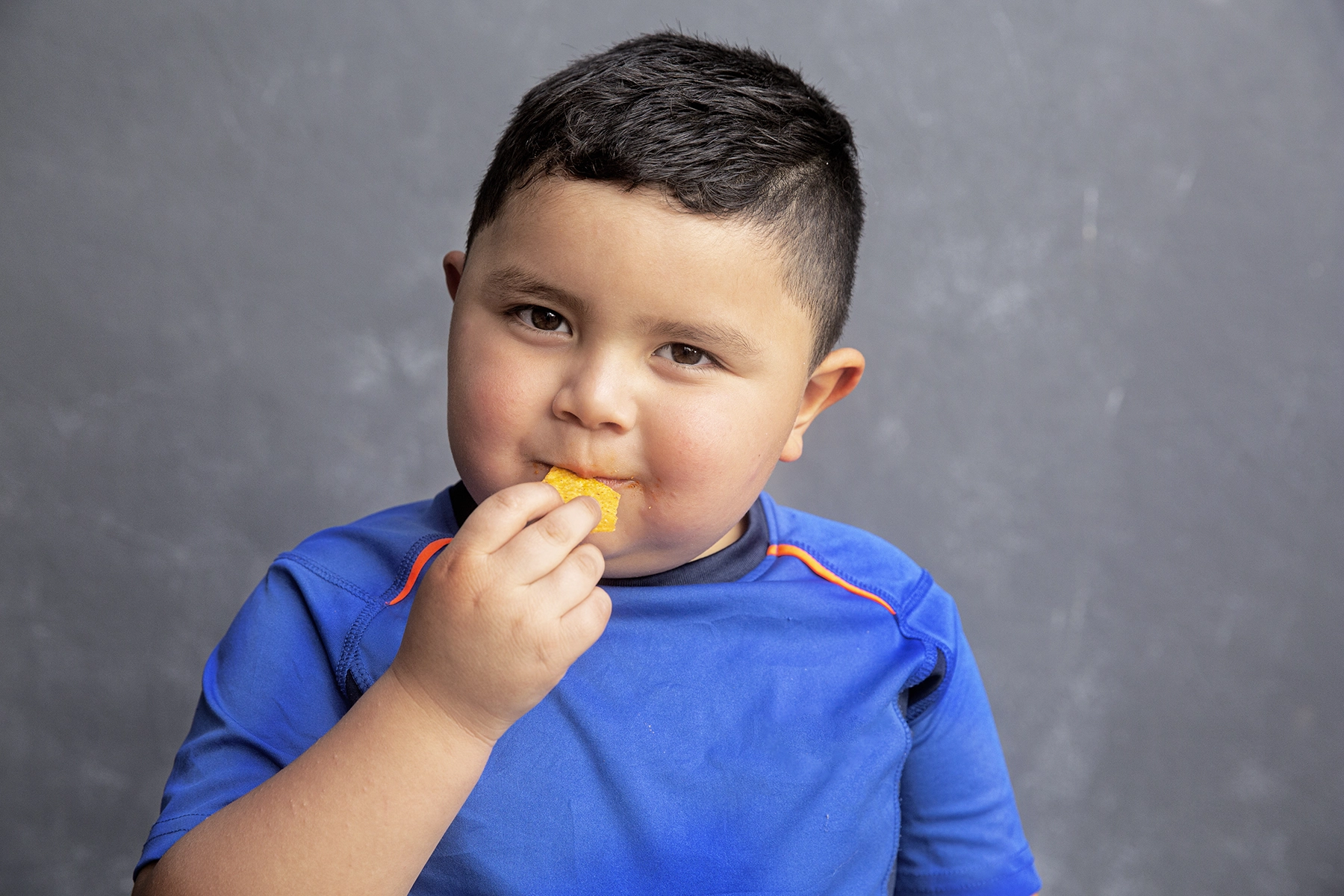Kids and Weight: How to Help Them Live Healthier

The steadily growing number of overweight and obese American children, though no longer stop-the-presses news, continues to worry pediatricians and other health experts. The consequences signal a generation that could likely suffer from chronic medical conditions.
Approximately 14.7 million U.S. kids between the ages of 2 and 19 — or about 1 in 5 — are considered obese, according to the Centers for Disease Control and Prevention. The rate is highest among Hispanic and non-Hispanic Black children as well as kids in families with lower incomes. Except for some dips over the years, the number of children whose Body Mass Index is at or above the 95th percentile of the growth charts — the official measure for obesity — has been inching steadily upwards since the 1970s.
Elizabeth Pulgaron, Ph.D., a clinical psychologist with the University of Miami Health System, sees that trend in pediatrician referrals. She also sees the consequences.
Childhood obesity can lead to:
- Type 2 diabetes
- high blood pressure and cholesterol
- nonalcoholic fatty liver disease
- breathing problems
For example, children who are overweight are more likely to develop asthma and obstructive sleep apnea.
New research presented at the European Congress on Obesity in May also revealed that a child with severe obesity at the age of four who doesn’t lose weight in childhood has a life expectancy of 39 years — half of the average. Losing weight, however, can lengthen life expectancy. If a child loses enough weight to fall into the lowest rung within the obesity range, life expectancy increases to 64.
The psychological consequences, perhaps less known, can be as profound.
“The immediate medical concern may be weight, but there’s much more that goes along with it,” says Dr. Pulgaron, who specializes in psychosocial behavioral interventions for children, including those with obesity. “Children [with obesity] will present with anxiety and depression as well as lower self-esteem.”
Even in an era of body positivity, children may suffer cruel taunts. “Kids say mean things,” Dr. Pulgaron adds, “and now social media has added a whole other layer of pressure and opportunity for bullying.”
What’s more, changes in how children spend their time — mainly less physical outdoor play and more inside video gaming — contribute to a lifestyle that makes maintaining a healthy weight more difficult. But, as Dr. Pulgaron quickly points out, losing weight and keeping it off is not impossible.
“It requires effort, but it’s certainly doable,” she says. “It comes down to adopting healthy habits, a healthier lifestyle.”
If you’re a parent who wants to encourage your child to shed the extra pounds, Dr. Pulgaron has several suggestions:
- Make healthy eating a family project. “The entire family has to be in on it,” Dr. Pulgaron says. “For change to be long-term and sustainable, you have to involve everyone.” Have a conversation with all family members about how you’d like to make healthy changes.
- Model the right behavior. Remember: your kids pay more attention to what you do than what you say. If you’re sneaking in a bag of potato chips instead of a juicy apple as a snack, they’ll notice. Lead by example.
- Figure out what prompts your child’s — and your family’s — mindless eating. Is it boredom? Anxiety? Does your child eat while watching television? Knowing the triggers is the first step to changing behavior.
- Plan your meals and recruit the children in the planning. Dr. Pulgaron is a fan of including kids in kitchen prep. “Encourage your child to help prepare a meal,” she adds. “Make it fun and creative.”
- Avoid rigid rules. A no-candy-ever rule is unrealistic and hard to follow. “Reserve certain foods for special occasions. Prohibiting them usually doesn’t work and can make them more attractive,” she says.
- Consider goals that are not necessarily tied to the scale. Rather than setting a do-or-die number of pounds to lose, it might be more practical to set another target. Dr. Pulgaron recommends trying one new fruit and one new vegetable every week.
- Factor in exercise and try to do it as a family. Maybe your child can suggest an activity – hiking, swimming, dancing – that will get everyone moving. Substitute TV and computer time for outdoor play.
- Find out what works for your family. “What works for others may not work for you. Success is going to look different from family to family, and that’s fine as long as it’s something you can stick to.”
- Seek help if you need to. Your pediatrician can refer you to a registered dietitian, psychologist or other professional who can guide you on your journey. Sometimes, an expert nudge is what you need to get started.
- Be gentle with yourself. Losing weight takes time. Healthy habits require a lifetime commitment. “This is really, really challenging,” Dr. Pulgaron says. “There are going to be ups and downs. It’s not about pointing fingers but about educating the family and making better choices.”
Written by Ana Veciana-Suárez, a regular contributor to the University of Miami Health System. She is an acclaimed author and journalist who has worked for The Miami Herald, The Miami News, and The Palm Beach Post.
Tags: chronic disease, contribute to weight gain, Dr. Elizabeth Pulgaron, processed foods, risk of obesity, weight gain in kids
